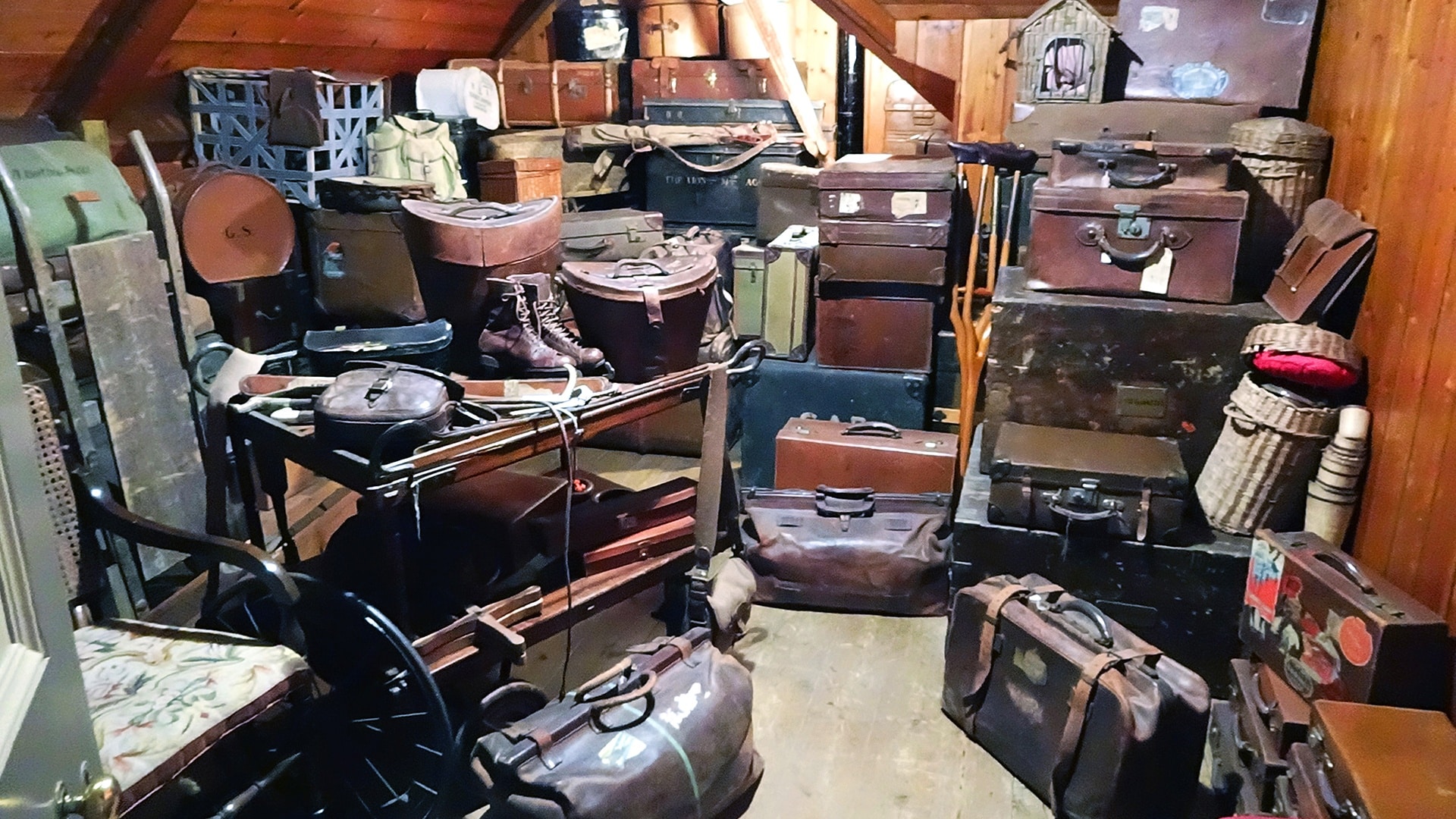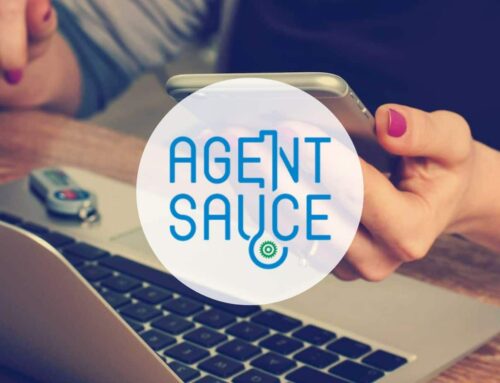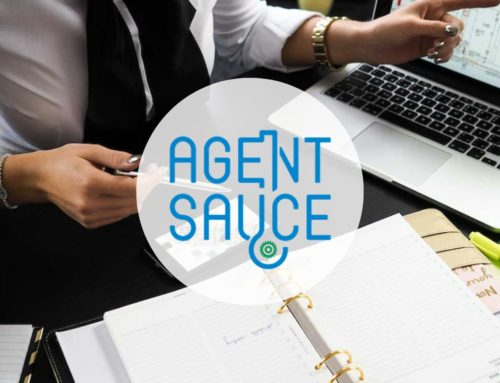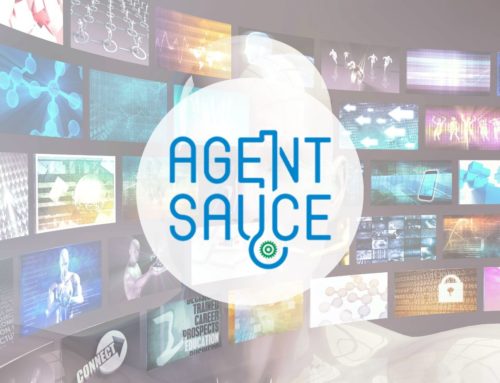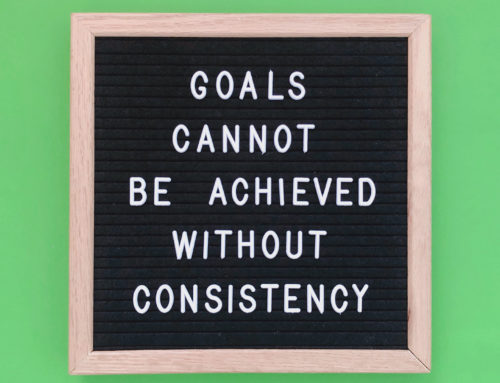We had a great interview with Cindy Hartman of Nationwide Inventory Professionals about Home Inventories and their value.
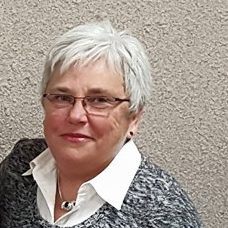
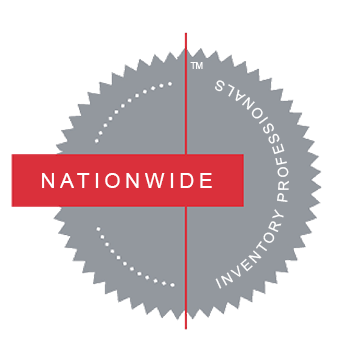
Home Inventories And Their Benefits< Podcast Links/h2>
Reasons To Inventory
- Loss – Knowing make, model, serial number, and quantity will help tremendously in case of fire or burglary.
- Estate Planning – Inventories can help establish inheritance wishes.
- Divorce/Prenuptial – Knowing the value of assets pre and post marriage.
- Proper Insurance – Making sure you aren’t underinsured.
Home Inventories And Their Benefits Podcast Transcript
Adam Small: Hello and welcome to Real Estate Marketing Minute. I’m your host, Adam Small. And with me today, we have Kimberly Small from Agent Sauce.
Kimberly Small: Hi. How are you?
Adam Small: Doing well. And you?
Kimberly Small: Good.
Adam Small: Good. And our special guest today is Cindy Hartman from Nationwide Inventory Professionals. Hi, Cindy, how are you?
Cindy Hartman: Hi. I’m great. Thanks.
Adam Small: Great. So today we’re going to be talking to Cindy about Nationwide Inventory Professionals. So Cindy, why don’t you tell us a little bit about you and your background before we kick into the inventory aspect of things?
Cindy Hartman: I was born in Ohio. We moved to Indianapolis in the late 1980s. I was in the corporate world for over 30 years. Decided to go out and try entrepreneurship. Which has-
Adam Small: Big leap there after being in the corporate for a long time.
Cindy Hartman: It was scary and fun all at the same time.
Adam Small: Yeah
Cindy Hartman: I’m a mother of two sons, four grandchildren, and have been married to my husband, Mike, for 47 years.
Adam Small: Wow. Congratulations. That’s a long time.
Cindy Hartman: Thank you. It has been very long.
Adam Small: Not ready to kill him yet?
Cindy Hartman: A couple times maybe.
Adam Small: Couple of times, there you go, so. Alright, so you’re with Nationwide Inventory Professionals and what is it that you guys do there?
Cindy Hartman: Well, Nationwide Inventory Professionals is a licensing agreement with other professionals who have started a home inventory business.
Adam Small: Okay
Cindy Hartman: We assist them to do that. We started out on this journey as being home inventory professionals.
Adam Small: Okay. And, what is a home inventory? I mean it sounds obvious but it seems to me there’s probably a lot more to it than just what it sounds like.
Cindy Hartman: Well, basically you’re pretty much right it’s exactly what it sounds like. We inventory the contents of a persons home.
Adam Small: Okay
Cindy Hartman: We take photographs and also do a written report including all of the big ticket items that would list the contents throughout the home as well as the garage and the exterior.
Adam Small: Okay. So, there’s a lot of documentation in there so, very interesting.
Kimberly Small: And you do the services for businesses as well? In addition to homes?
Cindy Hartman: Yes, we do. We do the assets for businesses, non-profits, government buildings as well as homes.
Kimberly Small: What caused you to get interested in that kind of business? You’ve been in corporate world…I’ve known you…several years now so what caused you to switch over and get into this business in particular?
Cindy Hartman: Well, what caused the move to entrepreneurship was me losing my job. You know, sometimes those big life events force you to do something that you’ve been thinking of for years and years and years and-
Adam Small: It was an opportunity?
Cindy Hartman: There you go.
Adam Small: Is what you’re saying right?
Cindy Hartman: Totally, opportunity. And, Mike and I had talked about starting our own business for a long time. And when I was jobless, after a few months of sitting on the deck soaking up the sun, Mike kind of encouraged me to get back to working. And I thought I don’t want to go back.
Adam Small: You need to get a job.
Cindy Hartman: Yeah! I don’t know why. So, I started looking around to find another job and couldn’t find anything I really wanted to do. So, one day Mike got home from work and I said yeah I’m gonna start my own business. And his reply was well find something we can do together because you know I don’t like my job. And that really wasn’t my intent, but we decided to go into business together. It’s just been great. We’ve totally enjoyed working together as well.
Cindy Hartman: So, that’s what gave me the catalyst to get into starting our own business. Why we chose this business is we had been burglarized once. Very small. We remembered everything we had but it was still a whole Sunday of going through the paper, finding things similar to what we lost, writing it out, filing our claim.
Cindy Hartman: Well then a few years later, we had another major theft and we lost thousands of dollars worth of items.
Adam Small: Wow…
Cindy Hartman: Mainly because we couldn’t remember what all we had in the garage. And so two years later, Mike would go out to get a tool. Comes back in the house, well there’s something else we forgot to list. And after we totaled up everything over the years that we had remembered later, too late to file the claim, it totaled thousands of dollars.
Adam Small: Significant loss.
Cindy Hartman: It was terrible. And the time factor of trying to remember everything and you know you look in the garage and there’s a space there and think what the heck was there.
Adam Small: Right.
Cindy Hartman: I don’t remember either. And it was just awful. So, it was months long process, just for the garage. I can’t imagine having to do it for a whole house.
Adam Small: Right, right.
Cindy Hartman: So, when we were looking for something to do we found that type of service on the internet and we thought, you know, bingo this is really what we would love to do. Because we were looking for a service and something where we could help people. And something that could be done out of the home. So, it met all of those criteria. That Hartman inventory was begun.
Adam Small: Cool
Kimberly Small: You mention burglary. There’s a lot of other reasons that people would want to have an inventory and things that it helps with. Can you kind of go in to detail other reasons people would need to have an inventory on hand?
Cindy Hartman: Sure. Besides burglaries, of course natural disasters, weather, tornadoes, or floods, or hurricanes. Also, for an estate. If you’re the executor of your parents or siblings estate, to settle that estate, you’re required to file a list of all the possessions so that they can be added to the value of the estate.
Cindy Hartman: And that’s a rough time for the executor to go through. You’ve just lost somebody, a dear relative or a parent, and now you’re the one responsible to pull all that information together. A major part of our business is doing the estate inventories. Other times, for divorce, separation of assets a more polite way to word it.
Cindy Hartman: Or pre-nuptials. Many times when it’s…when people have adult children and they’re merging these two families and the children want to make sure they receive they family items when that time comes. Having that inventory for all of those reasons is very helpful.
Cindy Hartman: One of the things on our written report that we include is a bequest column. So that when you do your initial inventory, you can state who you would want to have that item. So when the end is there and people are splitting up your belongings that kind of stops a lot of the family fighting because you know the wishes of the person who just passed.
Adam Small: Right, very-
Cindy Hartman: It’s a very helpful tool.
Adam Small: Very interesting. You kind of touched on this earlier. When you mentioned your own issue with burglary and theft with insurance. Explain why you would need a home inventory if you do in fact have insurance.
Cindy Hartman: Well the contents insurance is based on the percentage of what your home is insured for. That’s based on the value of your house. So, you’ll receive based on your insurance policy somewhere between 60 and 80 percent of what your policy is for the home, that’s what they’ll register you, or insure you for, for the contents.
Cindy Hartman: The importance of having that list is when you have a loss the insurance company won’t just send a check in the mail a lot of people think that. Oh, if I have a loss I’ll just get a check for the amount of my insurance. There’s two main reasons why they won’t do that. For one, since it’s just based on the value of your home you could have a lot more items then the value. As and example, we inventoried a home that was valued at $200,000. Their contents were worth over $400,000 because they had a lot of antiques and fine art.
Adam Small: Right
Cindy Hartman: That’s one time you would want that inventory beforehand so you know you’re insured properly.
Adam Small: Right
Cindy Hartman: If you’re using the percentage based on the value of your home, let’s say you just had a kitchen fire. They can’t give you a full amount of the total insurance because that would include everything in your home. So you would have to take the time list everything that you need replaced so the insurance company knows what to give you.
Adam Small: Okay. So are there any reasons besides disaster, or fire, or burglary, or something like that. That a homeowner would want, or need, an inventory?
Cindy Hartman: Sure, there’s quite a few. We do have clients who want to have collectibles listed and photographed, item by item. That’s a major difference between a regular home inventory and a collectibles inventory.
Adam Small: Mm-hmm (affirmative)
Cindy Hartman: Because on a collectibles we would list each item, piece by piece, name the item like if it was figurines, we would list the name of the figurine, usually there’s a number identifying that figurine. And then we would take an individual photo of each. So a lot of people want that as collectibles so they can have that itemized list. A lot of times people are trying to complete a collectible.
Adam Small: A collection, right
Cindy Hartman: A collection. And by having that individual..those individual pieces listed, they won’t over buy. We’ve met so many people, that oh, I didn’t know I had that and I already bought another one. So this way, they can always check before they purchase a duplicate item.
Adam Small: Oh oka.
Cindy Hartman: And then they’ll also be able to take the full item of a collection and know what pieces they still need to look for. Another reason would be sports memorabilia. Those can be pretty valuable at times.
Adam Small: Pretty expensive collectibles there right.
Cindy Hartman: Antiques and then of course china and silver. A lot of times they would want those to be itemized individually as a collectible, instead of just under the normal home inventory. Then for realtors. With the industry that you’re in, there are two main needs for people who want to have an inventory and for realtors that would know about this to help their clients.
Cindy Hartman: Like if somebody is getting ready to move, often, if they’re moving in town it’s nice to have that inventory prior to loading the truck. Well that would be for in town or out of town. You’re loading the truck, the moving company will do an inventory, but they’ll inventory just how many boxes. The don’t inventory everything that’s in each box.
Adam Small: Right
Cindy Hartman: A great example of that is Mike and I met this couple who were moving to Indianapolis from California. The truck was in an accident and caught on fire. All of their possessions were burned up.
Adam Small: Wow, oh man.
Cindy Hartman: When they went to the moving company to get their inventory, it listed all of the furniture piece by piece but then they had X number of boxes. No idea what was in those boxes.
Adam Small: Right
Cindy Hartman: So they could only do a best guess, try to remember and she said, you know there’s no way they’ll ever recover. So for a realtor, when they know their customer is moving, it’s better to get a full inventory by a professional. Rather than-
PART 1 OF 3 ENDS [00:11:04]
Cindy Hartman: It’s better to get a full inventory by a professional rather than count on the moving company because they won’t have that detail.
Adam Small: Okay, so moving is actually a good time to do it both from a perspective of access to the home and things coming out as well as insurance purposes is essentially what you’re getting at?
Cindy Hartman: Right. Because if you don’t have a list of everything you had, then the moving company is certainly not going to believe you-
Adam Small: Right. Right.
Cindy Hartman: Unless you have a good itemized list. Then, also the photos to prove that what you’re listing-
Adam Small: Right. Right.
Cindy Hartman: You have the proof that the photos are going to back up everything that you’ve listed. Then, also if you’re placing items in storage. A lot of times realtors know of people moving, and then there’s a month delay before they can get into their new home.
Adam Small: Right.
Cindy Hartman: When your items are not on your property, you don’t have insurance on those items. Some storage units require insurance, others do not, so it’s always good to check with your insurance agent. I know a lot of people say, “Well, it’s safe, because the storage units are-”
Adam Small: Right. It’s in an enclosed place and all that.
Cindy Hartman: Yeah. But all you need is the key.
Adam Small: Right.
Cindy Hartman: The numbers to get into the facility.
Adam Small: Facility, right.
Cindy Hartman: Then, on the other side, often, we’ve talked to people that own the units as well as police officers often as people that have a unit that are the thieves of other units, so they have easy access. Then, of course, opportunity for floods and sometimes a fire. Strange things happen, so it’s really good to have that, again, a list of everything in that storage unit.
Cindy Hartman: In fact, we had a client who did that, had things in storage and they moved to Granger, Indiana. Well, she called and she goes, “Do you still have our inventory? We can’t remember if we had such and such in there or if we misplaced it.” It comes in very handy no matter what you’re doing or where you’re going to have that list.
Adam Small: Right. Right.
Cindy Hartman: Then, another reason is if people are buying a new home, bigger home.
Adam Small: Right.
Cindy Hartman: You’ve had a few more children and to have a list of everything as you buy it is a great time to start that inventory. You’re getting new items, you can have a really good … You’ll have the price right there and everything else you need. Or for people, especially seniors who are down sizing. They’re going to be getting rid of things. Then, that’s another good time to have an inventory because then, that’s when that can especially start that bequest column because they’re getting older.
Adam Small: Right.
Cindy Hartman: They start to think about who’s going to want this.
Adam Small: Right.
Cindy Hartman: In fact, we have our list and we had our grandkids walk through the house one day and point out things they wanted.
Adam Small: Well, that’s a nice morbid activity. Sorry.
Cindy Hartman: Well, we made it fun. We started when our grandson was the youngest at the time. He was four.
Adam Small: Oh yeah?
Cindy Hartman: Kids that age don’t get freaked out-
Adam Small: Right, right.
Cindy Hartman: About death, so it was just, “Hey, what would you have of grandma’s if you could have anything in here.”
Adam Small: Yeah, yeah.
Cindy Hartman: That lightened things up and then, we just went from grandchild to grandchild.
Adam Small: Yeah, yeah.
Cindy Hartman: It was really nice and now, we know who wants what.
Adam Small: Right, right. Absolutely.
Kimberly Small: You go through and you do this process for clients and bring it to their attention that they need it. If people ask you about, “Well, why don’t I just do this myself? I’ve got my iPhone. I can take pictures and go room to room and do inventory and throw stuff on an Excel sheet.” It’s like the to-do list on your homes. You can do things but tell me a little bit about what you do that a normal person wouldn’t necessarily think of in order to document those things.
Cindy Hartman: Okay. Well, and to your point, we have that people say to us, “Well, why would I hire you? I could do it myself.” Mike and I both immediately answer, “Have you done it yet then?”
Kimberly Small: Good answer.
Adam Small: That’s the first answer, right? Yeah, yeah.
Cindy Hartman: They usually go, “No.” Some people have and we always say, “Way to go.” We’re really excited because there’s just such a few percentage of people who actually have a really good thorough inventory.
Cindy Hartman: We have found that a lot of people will go and do a real quick video of their home and that’s better than nothing. But the key is to have the written report. The purpose of that is on a written report, you’ll have model numbers and serial numbers where if you’re just doing a quick video, most people don’t talk into the phone to record everything that way. The importance of having a serial number is if you have a theft and the police recover your goods, which is much better than having to file the claim-
Adam Small: Right.
Cindy Hartman: They will need proof that it’s yours. If you don’t have serial number, it’s pretty hard to prove that it’s yours-
Adam Small: It’s not yours, right?
Cindy Hartman: Unless you’ve got your name engraved on it.
Adam Small: Right.
Cindy Hartman: We know of a business owner who is no longer in business because she had her office broken into and they stole all of her computers. The police called her and said, “We have recovered a bunch of computers. Come down and see if any are yours.” Well, she walked into a room the size of a school classroom. Nothing but computers. Table after table after table. They all looked alike. She didn’t have the serial numbers, so she never was able to open her business again because she couldn’t recover from that loss.
Adam Small: That’s terrible.
Cindy Hartman: That’s the importance of a serial number.
Adam Small: Yeah.
Cindy Hartman: Also, model numbers are good because when you go to replace it, that model number will help you prove to the insurance company if you have a, let’s say it’s a power tool and you bought a circular saw. Well, was it $15 one at Walmart or was it the top of the line from DeWalt.
Adam Small: Right. Right.
Cindy Hartman: The only way to know that or the best way to prove it is that model number because that model number tells exactly what that value was.
Adam Small: What it was, right. Right.
Cindy Hartman: That’s why those numbers are so important and when people do a video, they rarely think to record that stuff as well.
Adam Small: Right.
Kimberly Small: You’ve been doing this for a while and you have relationships with insurance companies, you know what they’re looking for in that kind of stuff when they’re doing claims and you store the documents properly too. If they do the video, if they upload it and they put it somewhere where they could access if their home is or their business is down but you do that for them as well and you know what insurance companies are looking for, so you have that expertise that most people don’t.
Kimberly Small: You hit on a good point. There’s a lot of things around the house that people can do but they don’t get around to it or they don’t really have the expertise to really do it. They’re not organized enough or have the thought process in order to-
Adam Small: To do it right.
Kimberly Small: To do it correctly.
Adam Small: Well, I mean, and your point about the model is really a great example of that because a lot of people would know, “Well, I need the serial number,” but they may or may not get the model and if you have the serial number, sometimes you can look that up online but not necessarily. From a valuation perspective, I can see, just make sure you’re crossing all your Ts and dotting your Is. It’s probably better to hire a professional than to try to do it yourself.
Kimberly Small: Since you guys have started this business, you guys have expanded into other services and companies. Tell us a little bit about what else you do beyond going into homes and businesses and doing inventory.
Cindy Hartman: In 2004, we started our business and it was really difficult to start because we didn’t know exactly what we had to do. What type of photos do we need to take? What do we have to list? What isn’t necessary to be listed? We met with insurance agents and insurance adjusters, estate attorneys, financial planners, all of the different industries that our report would serve and found out what they needed. Because if we don’t serve our clients in a way that will benefit them down the road when they need to use their report, we’re not giving a very good service.
Adam Small: Right. Basically, if the insurance company is going to say, “Yeah, this report does nothing for us,” then you’re not doing the job.
Cindy Hartman: Right. Our clients basically wasted their money.
Adam Small: Right.
Cindy Hartman: We had to make sure we were providing the right information. We used a lot of guidance from them. Then, after about two months of practicing in our house, we went back to those four different industries and talked to again, the same ones that were willing to help us out the first time and said, “Okay, here’s what we’ve done. Would you look it over and help us?” It was so great to find people willing to work with us and help us because they saw the value in what we were wanting to do.
Adam Small: Right.
Cindy Hartman: They then said, “Okay, tweak this, tweak that. I like this.” In fact, it was a financial planner who recommended the bequest column on the report. It was nice to have their input. Once we got all that done, then of course, we had to create the marketing materials and develop a website and that, as you know, takes forever and a day.
Cindy Hartman: It was a good year before we were really up and ready to go start feeling we had a quality product that we felt confident asking somebody to pay us to do what we were doing.
Adam Small: Right, right.
Cindy Hartman: That’s the process and the difficulty that we went through that encouraged us to start Nationwide Inventory Professionals. It’s a business package and a licensing agreement where we license our logo with them and we create a website. It’s a clone from ours but we personalize the about us-
Adam Small: For the licensee, right?
Cindy Hartman: For the licensees, yes.
Adam Small: Right, right.
Cindy Hartman: We clone their website, personalizing the about us and contact us pages. We do personalized SEO for them and then we create a website, a newsletter for them and we write it and distribute it for them each month. Basically, we took all of the time consuming marketing side of the business away, so they could work on their business-
Adam Small: Right.
Cindy Hartman: We provide them with all the marketing.
Adam Small: Nice, very nice.
Cindy Hartman: Then, we have a licensing agreement with them that they have and one of the big things that we do that most of them, or I should say all of them, appreciate is our mentoring. If they have a question, they just pick up the phone and call us. Usually, since we’ve been at this for 14, 15 years, we’ve seen it all, done it all, if you want to put it that way. They’ll call us and say, “Hey, have you ever done a chiropractor’s office. I just had chiropractor call me.” “Yeah, and here’s some things you have to look for when you do that unique type of business.”
Cindy Hartman: Our experience out of all of these years are coming in really handy as we mentor our licensees.
Adam Small: You really took your business that you were doing from a home inventory perspective and you grew that into apparently a nationwide organization of home inventory people that rely on you for guidance and help in getting their businesses going. Is that what I’m hearing you say?
Cindy Hartman: Yes.
Adam Small: Nice. Very nice.
PART 2 OF 3 ENDS [00:22:04]
Adam Small: And their business is going. Is that what I’m hearing you say?
Cindy Hartman: Yes.
Adam Small: Nice, very nice.
Cindy Hartman: Franchise like in the way that we set it up, except they’re independent business owners.
Adam Small: Right.
Cindy Hartman: And they’re not required to do things our way. We share with them. We have a 200 plus page manual of marketing tips and who to market to and how to do it and the whole-
Adam Small: It’s guidance. It’s not requirements. Right?
Cindy Hartman: Exactly, yes. And we stress that to them.
Adam Small: Right.
Cindy Hartman: Here’s what we learned, we’ll teach you this, and then you go do it and massage it to where you’re comfortable.
Adam Small: Right.
Cindy Hartman: We don’t use a software program when we do our service. We have a couple liscencees that prefer that, so they use an app.
Adam Small: Mm-hmm (affirmative).
Cindy Hartman: We have others that use video instead of still photos. So it’s nice to watch them massage it. It’s fun to see how they took our base and then made it their own so it’s-
Adam Small: Make it work for them.
Cindy Hartman: Been fun to watch them. Yeah.
Adam Small: Right. Very nice.
Kimberly Small: So somebody that’s interested in doing this business and they reach out to you to become certified, how long would it take them to get up and going?
Cindy Hartman: We can have them ready to do business within 30 days.
Kimberly Small: Wow.
Cindy Hartman: They just have to go find the business. We take over all the website, the newsletter, all that background stuff. We get all that done in the 30 day timeframe. So if they have clients, and some do that quickly, they are ready to go and do it confidently because of the training. Or not the training … the mentoring that we’ve given them and the knowledge from that manual. They have that confidence that they can go out and say, “I’m ready to go do business already.”
Adam Small: Nice.
Cindy Hartman: A big change from our year. To bring it down to 30 days-
Adam Small: Right, right, right.
Cindy Hartman: It’s really great.
Kimberly Small: Yeah.
Adam Small: Yeah. So that’s a huge difference in timeframe for starting a business. That’s for sure. If somebody was interested in say becoming a licensee of your business, where would they find out more information about that?
Cindy Hartman: We have a website. Nationwideinventoryprofessionals.com. It explains a little bit more about the licensing agreement and the business package on the website and then if they want more information than that, there’s a form on there they can fill out and then we will be in touch with them.
Adam Small: Okay. And if I was a real estate agent, one of the things a lot of our real estate agent’s customers do is help homeowners in their transitions from buying a new home or selling their home and moving into their next home. And a lot of that’s with services. It’s with, “Oh, I know a handyman that can take care of this.” And, “I know somebody that can take care of your yard for you.” Or whatever it may be. Home services. Right? So they do a lot of referral that way. So if I was a real estate agent and I wanted to help my clients contact somebody in their area about getting a home inventory, where would I go? What would I do?
Cindy Hartman: The realtor or the client-
Adam Small: Right, either one.
Cindy Hartman: Whichever could go to the website and we have a directory of all of our licensees.
Adam Small: So that’s on your nationwideinventoryprofessionals.com?
Cindy Hartman: Yes.
Adam Small: Okay.
Cindy Hartman: There’s a directory of the licensees on there. They could find the one closest to them.
Adam Small: Okay.
Cindy Hartman: I do know some travel. We, from Indianapolis, we have been to Ohio, Illinois, Louisiana, Alabama, Florida. So we’ve enjoyed traveling and doing the inventory because they can’t find people-
Adam Small: Right.
Cindy Hartman: In their area. So they would just find the one closest to them.
Adam Small: Okay.
Cindy Hartman: And call them.
Adam Small: Okay, great. So you guys have a program with the licensees where they utilize your basically company business in a box in order to get them started and you provide a manual you said of 200 or so pages that helps them, gives them basically the benefit of your experience, right? Isn’t there a certification of some sort that they can also get that helps the consumer or the referrer or the real estate agent in this case have confidence in this person to do the job right?
Cindy Hartman: Yes. That is the third business that we own. When we started the, as you called it, the business in the box, we realized at that point that there were a lot of people out there wanting to do a business. Some of them didn’t want to become part of our organization-
Adam Small: Right.
Cindy Hartman: They just wanted to do their own thing. I already have my website or I do my own website. Whatever the reason. And we also realized there were a lot of people out there that really didn’t know the proper etiquette I guess you could say of owning a business and customer service. And so our business coach encouraged us to start an association that focused strictly on education.
Adam Small: Right.
Cindy Hartman: To provide the knowledge for all home inventory professionals whether they’re part of our licensing agreement or if they’re independent, completely independent. And so we started National Inventory Certification Association. More fondly known by us as NICA. We have created a certification program. There’s courses that are required to become certified and then they need to take so many CEU’s per year to maintain that certification.
Adam Small: Okay.
Cindy Hartman: And once they’ve reached that it’s called a Certified Inventory Specialist. And finding a lot of people looking for a home inventory provider, whether you’re a plumber or a home inventory specialist, they like to see some credentials.
Adam Small: Right, right.
Cindy Hartman: And having that certification has done a lot. We’ve had people call us and the first thing they ask us besides do you come to this city or this state is do you have certification and are you insured?
Adam Small: Right.
Cindy Hartman: So people are realizing the value of that so we’re really pleased that we started this. So to your other question on how do they find people, if none of our licensees are in their area, they could go to this other website, the association, there’s also a directory there of all members throughout the country.
Adam Small: Okay. So, your licensees then are required to be certified? Is that what I hear you saying?
Cindy Hartman: Well, we can’t require them because they’re independent business owners.
Adam Small: True.
Cindy Hartman: But we encourage it. And in fact part of their fee to become a licensee, we pay for their first year of membership in the association and we pay for all of their courses so that they can achieve that. And then after that first year, it’s up to them to maintain that on their own.
Adam Small: Okay, okay. Great. Kim, you got anything else?
Kimberly Small: You guys have a great tagline. And it reminds me … I think some people think, when they think of home inventory, is they think I’ll remember everything I have. I know my stuff and all that. It makes me think of the game you played even in, I’ve seen it in networking events where there’s 20 things on the table and they put them all away and how many can you remember? And even with 20 things looking at them it’s … people have a lot more stuff than they think. And you have a great tagline that puts in perspective of if you … Go ahead.
Cindy Hartman: If you can’t remember, you can’t recover.
Kimberly Small: Exactly, so-
Adam Small: Oh, okay. I was going to say. Okay, you’ve said it twice now, what is the tagline? So, yeah, great.
Kimberly Small: So, we’ll, for the … go ahead and repeat the websites. The website for the certification process is …
Cindy Hartman: It’s nationalinventorycertificationassociation.com
Kimberly Small: Okay. And then somebody that’s interested in being a licensee?
Cindy Hartman: Nationwideinventoryprofessionals.com.
Kimberly Small: Great.
Adam Small: Alright. So, and you can go to either one of those, it sounds like, to find somebody in your area. Is that correct?
Cindy Hartman: Yes. There’s a directory page on both of the websites. And then if they still need further information on our contact us, we have our phone numbers and email addresses.
Adam Small: Alright. Sounds great. Cindy, do you have anything else you want to add?
Cindy Hartman: Just thank you and appreciate the opportunity to share the knowledge. And if there’s any realtors too that would have any questions, I’m more than happy to take those calls if they would like to discuss this further.
Adam Small: Alright. Great. Well, thank you so much for joining us. It’s been a real pleasure. And really informative. There’s a lot more to it than I thought there was. And to our listeners, thank you for listening. We’ll see you next time.
Cindy Hartman: Thank you.

